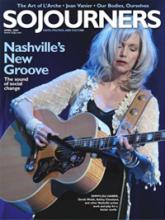Every morning of the World Economic Forum, CNN interviewed a bundled-up CEO with the dramatic, snowy “Magic Mountain” of Davos, Switzerland, in the background. The question was always the same: “When will this crisis be over?” They had a whiteboard where each CEO would write an answer: 2009 … 2010 … 2011 … later.
But on an unusual plenary panel at Davos, titled “The Values Behind Market Capitalism,” I suggested CNN had the wrong question. Of course we all want to know the answer to that one, but a much more important question is, “How will this crisis change us?” How will it change the way we think, act, and decide things, how we live and how we do business? Yes, this is a structural crisis that clearly calls for new social regulation. But it is also a spiritual crisis that calls for new self-regulation. We seem to have lost some things and forgotten some things—like our oldest and best values.
We have trusted in “the invisible hand” to make everything turn out all right and believed that it wasn’t necessary for us to bring virtue to bear on our decisions. But things haven’t turned out all right and “the invisible hand” let go of some things, such as “the common good.” The common good hasn’t been very common in our economic decision-making for some time now. And the situation has spun out of control.
If we learn nothing from this crisis, then all the pain and suffering it is causing will be in vain. But if we can learn new habits of the heart, perhaps that suffering can be redemptive. If we can regain our moral compass and find new metrics by which to evaluate our success, this crisis could become our opportunity to change.
Read the Full Article
